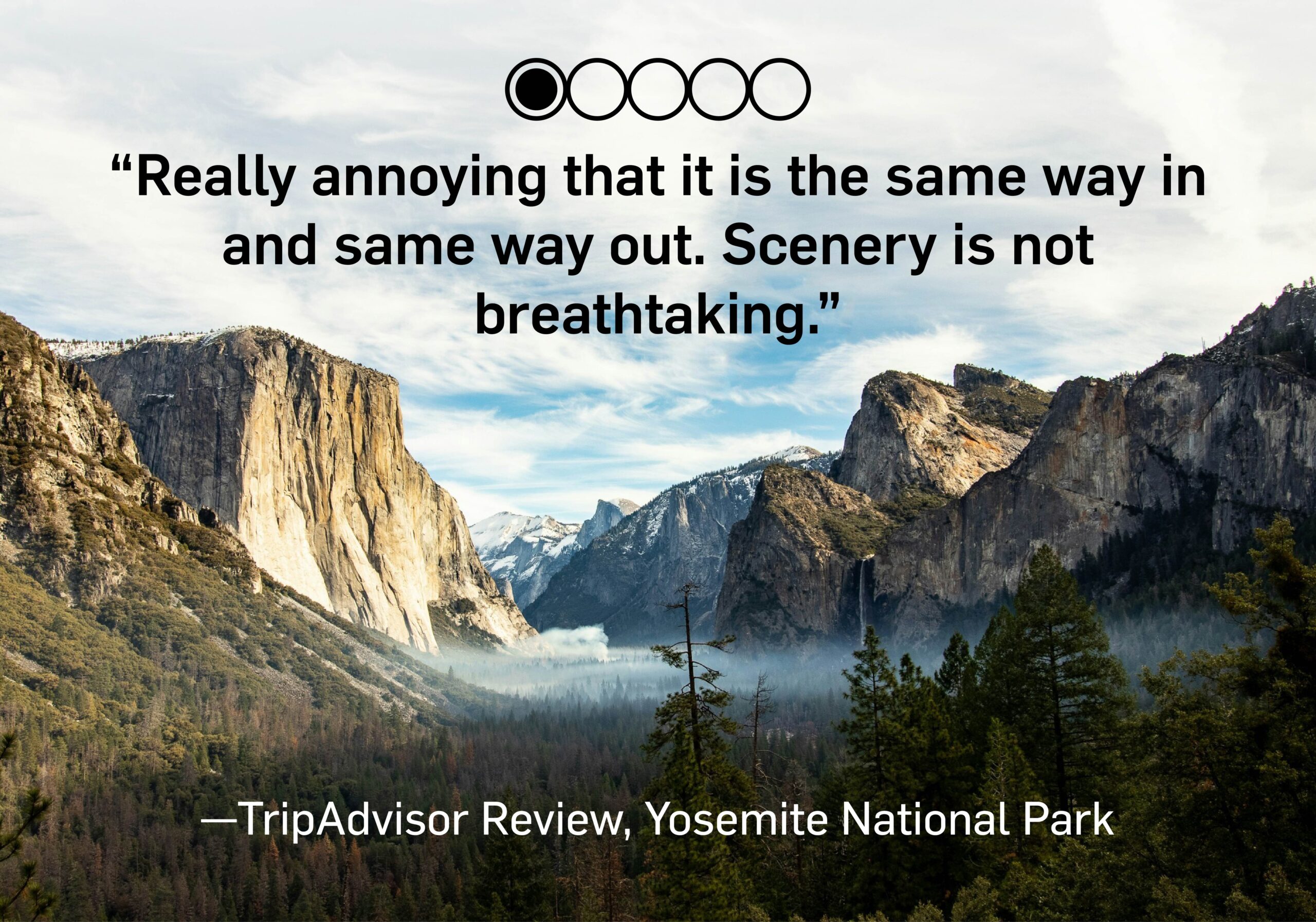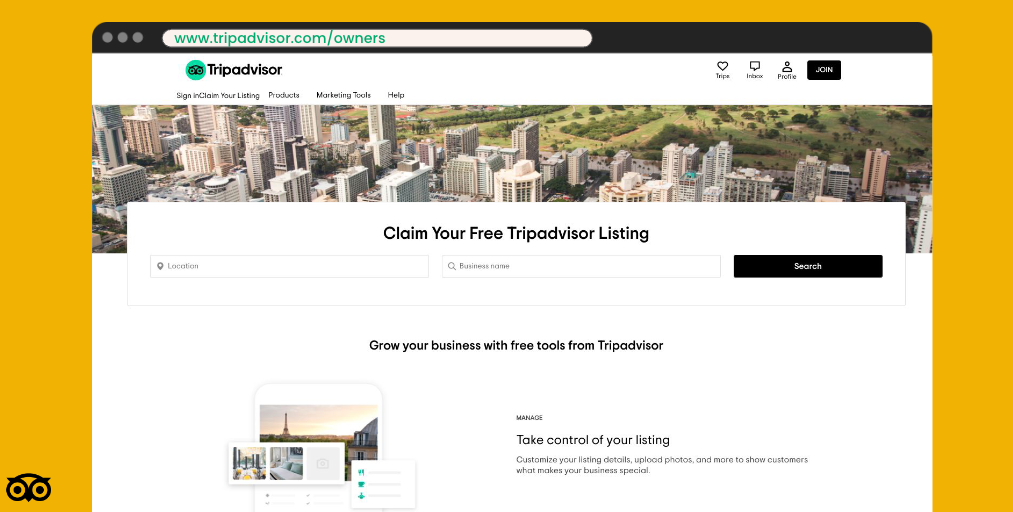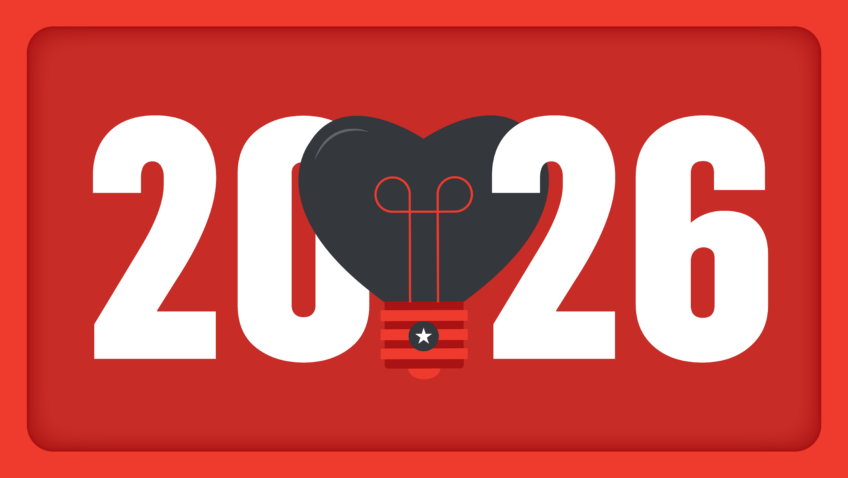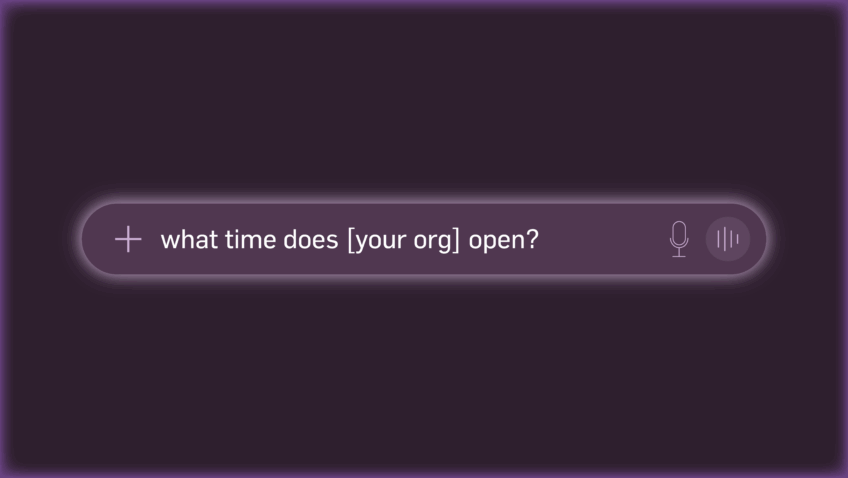Google’s Cultural Concierge: Why TripAdvisor Is Your Secret Weapon
TripAdvisor isn’t just for zoos and restaurants; it’s a powerful tool in your SEO arsenal that can help any arts and culture organization increase its search traffic, improve its appearance on the SERP, and even assist with appearing on AI tools like ChatGPT. Museums, dance companies, theaters, performing arts centers, and symphonies all need to pay attention to TripAdvisor.
A few years back, I was scratching my head trying to find a decent stocking stuffer for my brother-in-law. Then, I stumbled upon the perfect gift: Subpar Parks: America’s Most Extraordinary National Parks and Their Least Impressed Visitors, a collection of 1-star reviews from some of America’s most stunning natural wonders.
“Really annoying that it is the same way in and same way out. Scenery is not breathtaking.” — A TripAdvisor user reviewing… Yosemite National Park.

I think we can all relate to getting an unfair negative review, right? For years, TripAdvisor felt like just another chore, a place to deal with complaints. But it’s actually so much more than that. This platform directly impacts your Google ranking, how new audiences discover you, and ultimately, your ticket sales.
It’s time to stop thinking of TripAdvisor as a task and start treating it as a strategic asset. It functions as a powerful search engine, a free source of visitor intelligence, and, most importantly, a primary data feed for Google’s AI. When Google acts as a ‘cultural concierge’ with its AI Overviews, it looks to trusted sources like TripAdvisor for its answers.
The TripAdvisor Effect: How It Secretly Supercharges Your SEO
Why Google Cares So Much About Your TripAdvisor Profile
TripAdvisor’s entire reputation (and $1.8 billion in revenue in 2024) is built on trust. If a visitor shows up at your museum and finds it closed because your hours were wrong on the platform, they don’t just lose faith in you—they lose faith in TripAdvisor.
That obsession with accuracy is why Google sees TripAdvisor as a great source of truth. Think of it like a ‘trust score’: Google trusts TripAdvisor, and when your profile is complete and accurate, that immense authority rubs off on you. It’s a powerful third-party endorsement that tells Google you’re a legitimate, important entity, directly boosting the ‘Experience, Expertise, Authoritativeness, and Trustworthiness’ (E-E-A-T) that its algorithm demands.
 Taking Center Stage in Search Results with Off-Site SEO
Taking Center Stage in Search Results with Off-Site SEO
We put enormous effort into making sure our clients’ websites rank on the SERP when someone searches their name directly. (We helped the Capital Jewish Museum optimize their site to increase clicks to their Visit page by over 193%). But what else shows up on that first page?
Go ahead: Google your own organization. Chances are, below your official homepage, you’ll find your TripAdvisor listing on the first page of the SERP. This isn’t competition; it’s reinforcement.
Having a strong, positive TripAdvisor profile ranking high on your own branded search is incredibly valuable. It acts as immediate social proof, showing potential visitors that you’re not just a legitimate organization, but a well-regarded one. It gives you a second chance to capture their click and reinforces your importance before they even visit your website.
Mastering What Matters to TripAdvisor
TripAdvisor’s algorithm considers many factors, but we focus on four main broad elements:
- Quality: It’s simple: the higher your average bubble rating, the more confident TripAdvisor is in recommending your experience to others.
- Quantity: A 5-star rating from ten reviews is nice, but a 4.5-star rating from a thousand reviews is far more trustworthy. A large number of reviews proves your quality is no fluke and gives the algorithm statistical confidence.
- Recency: A rave review from 2019 doesn’t tell a visitor what to expect this Thursday. The algorithm heavily weights recent reviews because they reflect your current performance, giving users an up-to-date picture.
- Consistency: TripAdvisor wants to recommend a reliable experience. A steady flow of 4- and 5-star reviews shows you deliver excellence time and again. An organization with a volatile mix of reviews is a gamble; consistency proves you’re a sure thing.
Higher engagement usually bumps up your rankings, but reviews often hinge on the small touches like spotless restrooms, friendly staff, and a good café just as much as the main attraction. Your full staff is now part of the marketing team.
Start Optimizing Your TripAdvisor Page

Now that you understand why TripAdvisor is so critical, let’s get into the how. Follow these three steps to transform your profile from a passive listing into a powerful marketing engine.
Your Listing Lives and Dies by Accuracy
Before you can tell your story, you need to ensure your foundation is flawless. In the age of AI, this is more important than ever.
Start with your Name, Address, and Phone number (NAP). Think of this as your organization’s digital fingerprint. It must be identical—down to the “St.” vs. “Street”—across your official website, your Google Business Profile, and your TripAdvisor listing. Any inconsistency confuses search engines and weakens your authority.
Next, shift your mindset. In the past, you updated your profile for human visitors. Today, you’re also feeding data directly to machines. Google’s AI Overviews pulls information from trusted sources to give users direct answers. An error in your opening hours on TripAdvisor is no longer just a typo; it’s a piece of misinformation that Google’s AI can present as fact to thousands of potential visitors, leading to public frustration and a sharp decline in search authority.











